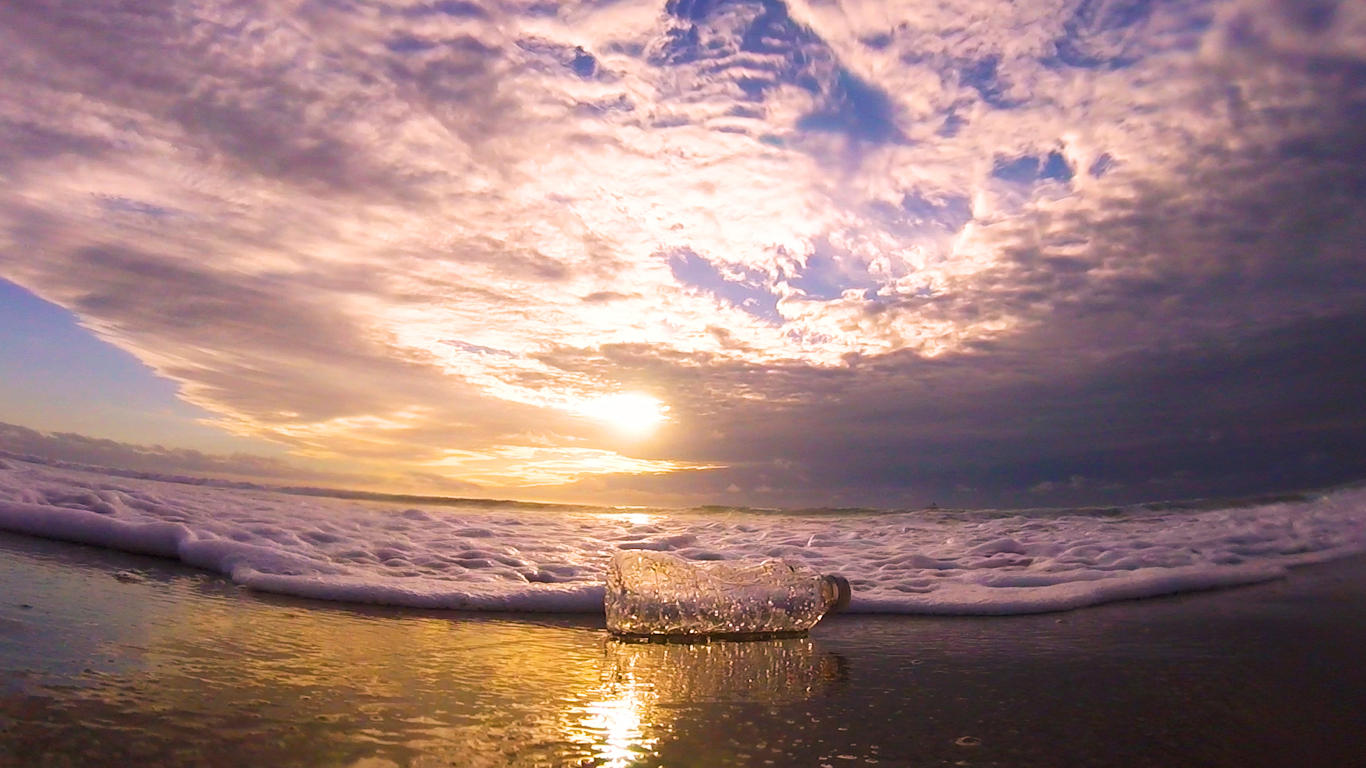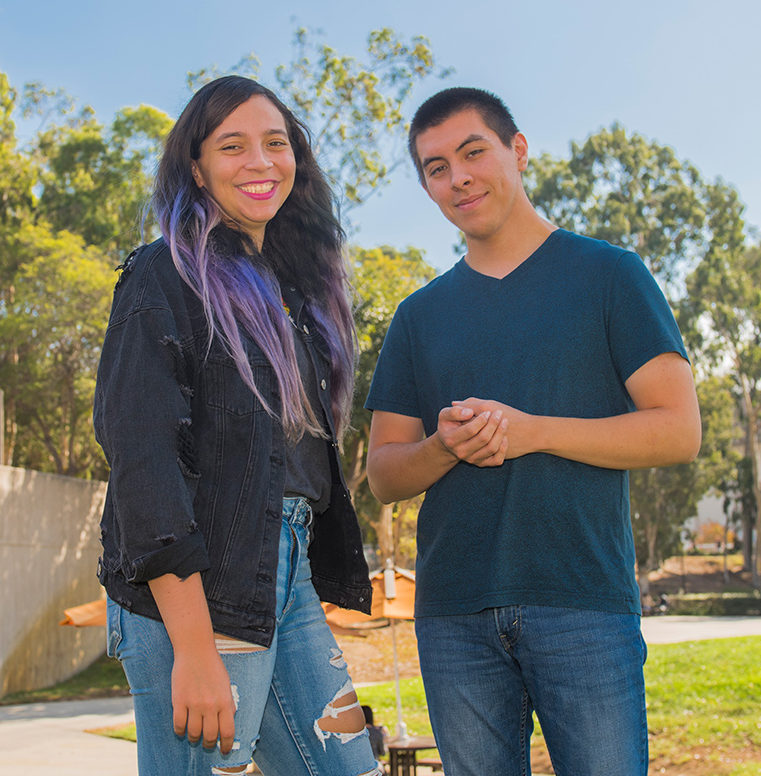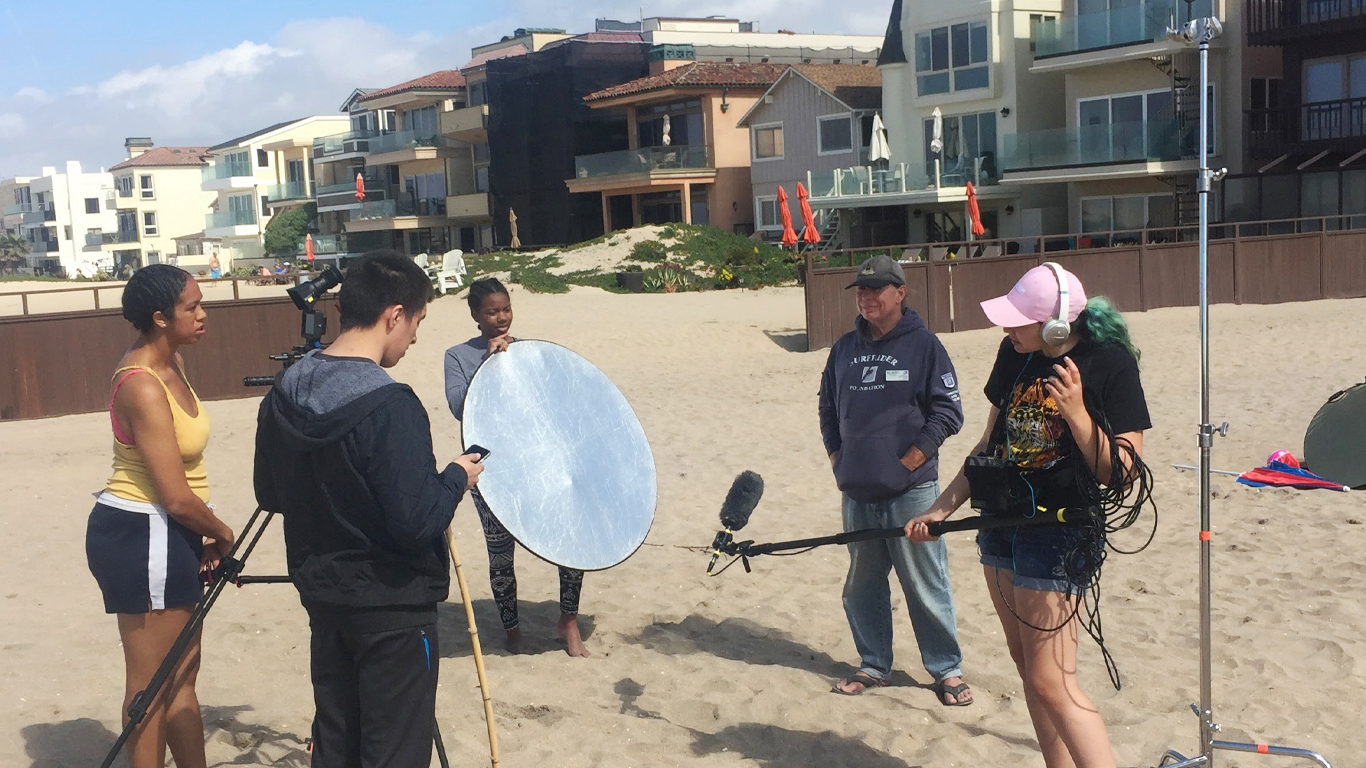 “Plastic Disaster,” a documentary about the devastating effect of plastic waste on marine life, has become an “ironclad achievement” for three Digital Media Arts (DMA) students at California State University, Dominguez Hills (CSUDH).
“Plastic Disaster,” a documentary about the devastating effect of plastic waste on marine life, has become an “ironclad achievement” for three Digital Media Arts (DMA) students at California State University, Dominguez Hills (CSUDH).
Produced by Farida Alami, Sal Velazquez, and Jeanine Carrere, who are all seniors in the DMA program, “Plastic Disaster” has already garnered impressive wins and has locked in several nominations early in the film award season, most notably winning the “Award of Recognition” from the prestigious Hollywood International Independent Documentary Awards (HIIDA), which they will receive during its awards gala in Los Angeles on March 24, 2018.
Update: The documentary won the Special Jury Remi award for Student Film & Video at the 51st annual WorldFest Houston International Film Festival, which took place April 20-29.

“Plastic Disaster” has also been selected as a semi-finalist for an esteemed Los Angeles Independent Film Festival award, received a top honor during the Rosarito International Film Festival in October 2017, and has been named a semi-finalist for the Los Angeles CineFest, which will hold its award ceremony Jan. 14, 2018. It has also earned “Official Selection” for the Women’s Only Entertainment Film Festival, taking place Dec. 20.
“I screamed when I heard we won the [HIIDA] award. I was so happy. It was just amazing,” said Alami, who came up with the concept for the film while surfing close to home in Venice Beach. “I see balloons, water bottles, chip bags, birds eating plastic–it’s heartbreaking. … It’s killing fish, turtles, whales, and many more species. Single-use plastic containers are one of the biggest problems for sea life, and they will be for generations.”
“Plastic Disaster” was shot on location in San Diego, Huntington Beach, Los Angeles, and Long Beach, as well as at the Marine Mammal Care Center Los Angeles in San Pedro. The film features interviews with experts from Heal the Bay, Surfrider Foundation, the mammal care center, and the Algalita Marine Research Foundation. They provided data and such insights as how plastic makes its way to the ocean–urban runoff during a rain storms, for the most part–and ways beyond ingestion that marine life suffers, such as getting entangled in grocery bags and nets.
“Although plastic is a part of our everyday lives, our bodies, our environment and our marine life are paying the consequences. We have to start making changes and sacrifice convenience for health,” said Carrere.
The film’s narration articulates the students’ research, which is backed up by graphic visuals of dead sea birds with bodies filled with plastic bits, entangled sea lions, and other images that are “necessary” to provide viewers vivid reminders about the problem.
“Some sea lions swallow water bottles whole, choke on them, and die,” Velazquez professed. “Plastic can also cause them to develop neurological problems.”
International film award competitions like HIIDA receive thousands of submissions.
“Being recognized feels surreal. Some people continue to underestimate the film work that is done here at Cal State Dominguez Hills,” Velazquez said. “Students at some of the big schools have access to over-priced film equipment, and cameras costing as much as $40,000, but we didn’t use very expensive equipment, and still ended up winning. That’s incredible, and it says a lot.”
 All three of the DMA students wore the hat of director, producer, writer, and videographer at different times during production so they could gain experience in each position, and discover new aspects of filmmaking. Velazquez learned that he likes working with graphics, and from this experience he may focus his professional endeavors in part on “unit management” work, such as casting and running projects. Alami discovered that she loves making documentaries, which she had no interest in prior to working on the film, and now plans to pursue it as a career. She also chimed in about the film’s budget to say that they spent approximately $200 during production, and “mostly on gas.”
All three of the DMA students wore the hat of director, producer, writer, and videographer at different times during production so they could gain experience in each position, and discover new aspects of filmmaking. Velazquez learned that he likes working with graphics, and from this experience he may focus his professional endeavors in part on “unit management” work, such as casting and running projects. Alami discovered that she loves making documentaries, which she had no interest in prior to working on the film, and now plans to pursue it as a career. She also chimed in about the film’s budget to say that they spent approximately $200 during production, and “mostly on gas.”
Alami also conveyed that in place of top-dollar film equipment, the DMA students had “the greatest” faculty members “we could have asked for,” who guided them throughout production.
“I’d like to thank all my professors, who were so great, and particularly Mario Congreve [media production specialist and lecturer in the DMA program], and [DMA Lecturer] Jody Mahler,” she said. “Without them, this project would not have been possible. If we were struggling with something, Mario would jump in, and even let us use his personal equipment. He’s just amazing.”